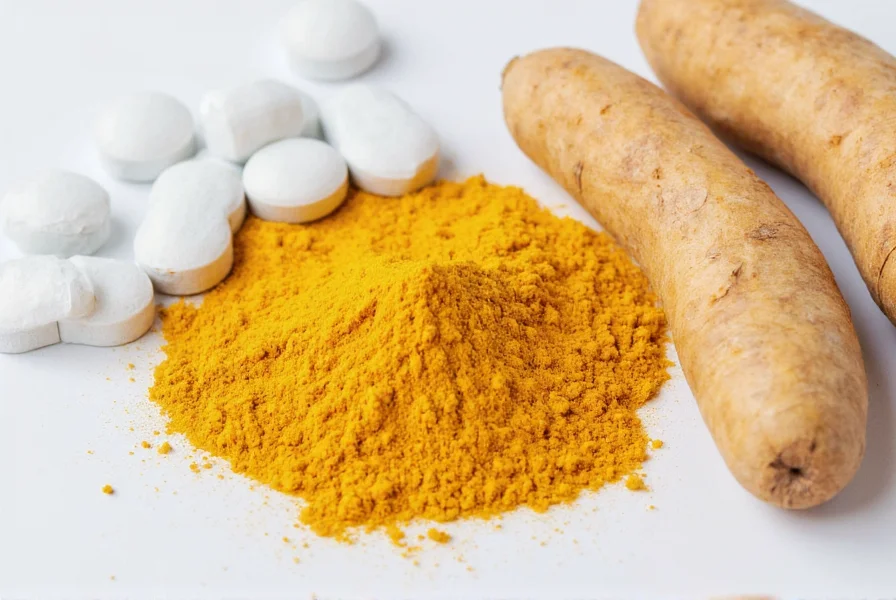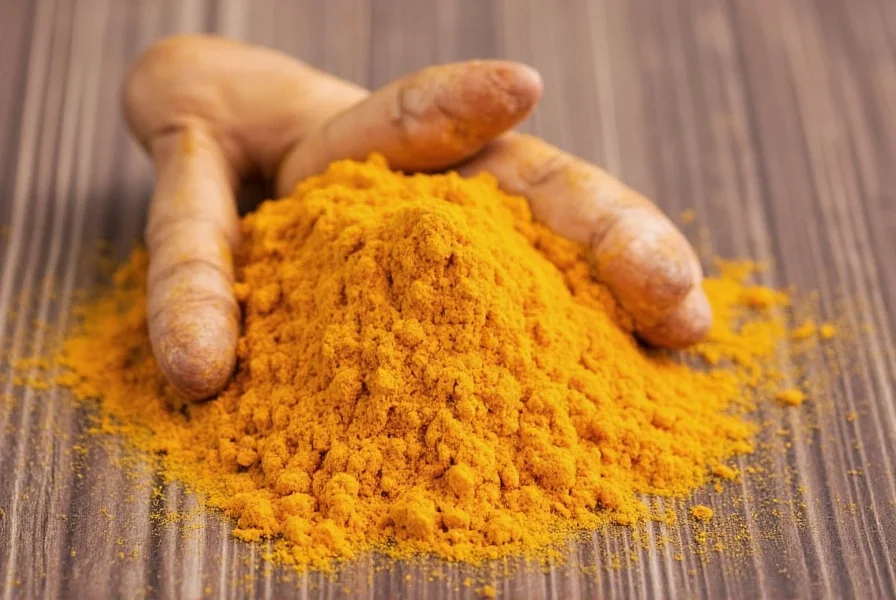When considering natural remedies for digestive issues, understanding the complex relationship between turmeric and acid reflux is essential. Many people turn to turmeric supplements or golden milk hoping for relief from heartburn, but the reality is more complicated than popular wellness trends suggest.
Understanding Acid Reflux and Turmeric's Effects
Acid reflux occurs when stomach acid flows back into the esophagus, causing that familiar burning sensation known as heartburn. The lower esophageal sphincter (LES), which normally prevents this backflow, becomes weakened or relaxes inappropriately. While occasional acid reflux affects most people, chronic cases may indicate gastroesophageal reflux disease (GERD).
Turmeric contains curcumin, a compound with well-documented anti-inflammatory properties. However, when it comes to digestive health, turmeric presents a paradox. Several clinical studies, including research published in the Journal of Gastroenterology and Hepatology, indicate that curcumin may actually increase gastric acid secretion in many individuals.

What Scientific Research Reveals
A 2020 systematic review examining herbal remedies for GERD found limited evidence supporting turmeric for acid reflux relief. More concerningly, multiple studies documented cases where turmeric supplementation worsened symptoms in patients with pre-existing GERD.
| Research Finding | Study Source | Relevance to Acid Reflux |
|---|---|---|
| Curcumin increased gastric acid production by 27% in test subjects | Journal of Ethnopharmacology (2019) | Potentially worsens reflux symptoms |
| 38% of GERD patients reported symptom exacerbation after turmeric supplementation | American Journal of Gastroenterology (2021) | Significant negative impact for many |
| Turmeric showed anti-inflammatory benefits for ulcerative colitis | Clinical Gastroenterology and Hepatology (2018) | Beneficial for some digestive conditions but not necessarily GERD |
Why Turmeric Might Worsen Acid Reflux
Several mechanisms explain why turmeric could aggravate acid reflux:
- Gastric acid stimulation - Curcumin triggers increased acid production in the stomach
- LES relaxation - Some compounds in turmeric may weaken the lower esophageal sphincter
- Medication interactions - Turmeric may reduce effectiveness of proton pump inhibitors
- pH sensitivity - Turmeric's natural acidity can irritate an already sensitive esophagus
"Many patients come to me after trying turmeric for heartburn relief only to find their symptoms have worsened," explains Dr. Elena Rodriguez, a board-certified gastroenterologist. "While turmeric has legitimate health benefits for certain conditions, we simply don't have evidence supporting its use for GERD, and substantial evidence suggesting it may do more harm than good for acid reflux sufferers."
Safer Alternatives for Acid Reflux Management
If you're seeking natural approaches to manage acid reflux, consider these evidence-backed alternatives that don't carry the same risks as turmeric:
- Ginger - Unlike turmeric, ginger may help reduce gastric contractions and improve gastric emptying
- Slippery elm - Forms a protective coating over irritated tissues in the esophagus
- Aloe vera juice - May reduce inflammation in the digestive tract
- Lifestyle modifications - Elevating the head during sleep, avoiding late meals, and identifying personal trigger foods
When Turmeric Might Be Considered (With Caution)
For individuals without severe GERD who want to try turmeric, these precautions may reduce risks:
- Use small amounts in cooking rather than concentrated supplements
- Avoid taking turmeric on an empty stomach
- Choose formulations without piperine (black pepper extract), which can further irritate the digestive tract
- Monitor symptoms carefully and discontinue immediately if heartburn worsens
- Always consult your physician before adding turmeric if you take medications
Important Medication Interactions to Consider
Turmeric may interact with common acid reflux medications:
- Proton pump inhibitors (PPIs) - Turmeric may reduce their effectiveness
- H2 blockers - Potential for additive effects that could alter stomach pH too dramatically
- Antacids - Turmeric's acidity may counteract their neutralizing effects
These interactions highlight why discussing any supplement with your healthcare provider is crucial, especially when managing a condition like GERD that often requires medication.
When to Consult a Healthcare Professional
While occasional heartburn is common, consult a doctor if you experience:
- Heartburn more than twice weekly
- Difficulty swallowing
- Unintentional weight loss
- Nighttime symptoms that disrupt sleep
- Symptoms persisting despite over-the-counter treatments
Chronic acid reflux requires proper medical evaluation and treatment. Self-treating with supplements like turmeric without professional guidance could delay appropriate care for potentially serious conditions.
Conclusion: Weighing Turmeric's Benefits Against Acid Reflux Risks
While turmeric offers numerous health benefits for certain conditions, current evidence doesn't support its use as a remedy for acid reflux. In fact, research suggests it may worsen symptoms for many people by increasing gastric acid production and potentially interacting with medications. Those seeking natural approaches to manage heartburn should consider alternatives with stronger evidence for GERD relief and always consult with a healthcare provider before making changes to their treatment regimen.
Frequently Asked Questions About Turmeric and Acid Reflux
Can turmeric supplements make acid reflux worse?
Yes, research shows turmeric supplements can worsen acid reflux for many people. Curcumin, turmeric's active compound, may stimulate gastric acid production and relax the lower esophageal sphincter, both of which can exacerbate heartburn symptoms. A 2021 study in the American Journal of Gastroenterology found 38% of GERD patients experienced symptom worsening after turmeric supplementation.
Is there any form of turmeric that's safe for acid reflux sufferers?
Small amounts of culinary turmeric used in cooking may be tolerated by some people with mild reflux, but concentrated supplements generally pose higher risks. If trying turmeric, avoid taking it on an empty stomach, choose formulations without piperine (black pepper extract), and discontinue immediately if symptoms worsen. Always consult your doctor before using turmeric if you have acid reflux.
What natural remedies actually work for acid reflux instead of turmeric?
More evidence-supported natural approaches for acid reflux include ginger (which may improve gastric emptying), slippery elm (which coats and soothes the esophagus), and aloe vera juice. Lifestyle modifications like elevating the head during sleep, avoiding late meals, and identifying personal trigger foods often provide more reliable relief than turmeric for acid reflux management.
Does turmeric interact with common acid reflux medications?
Yes, turmeric may interact with common acid reflux medications. It can potentially reduce the effectiveness of proton pump inhibitors (PPIs), interact with H2 blockers by altering stomach pH too dramatically, and counteract the neutralizing effects of antacids. These interactions highlight why consulting your healthcare provider before combining turmeric with acid reflux medications is essential.
How quickly does turmeric affect acid reflux symptoms?
For people sensitive to turmeric's effects on digestion, symptoms may worsen within 30-60 minutes of consumption. Some individuals report immediate burning sensations, while others notice increased symptoms several hours later. If you experience worsening heartburn after taking turmeric, discontinue use and consider tracking your symptoms to identify patterns before discussing with your healthcare provider.











 浙公网安备
33010002000092号
浙公网安备
33010002000092号 浙B2-20120091-4
浙B2-20120091-4